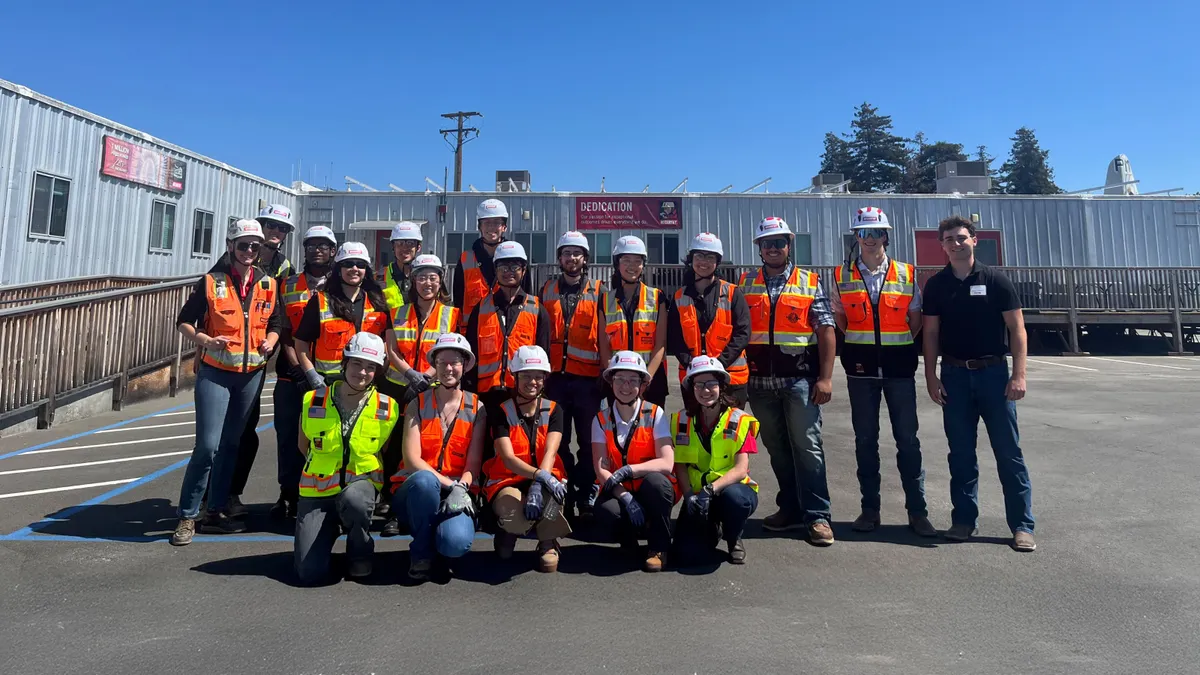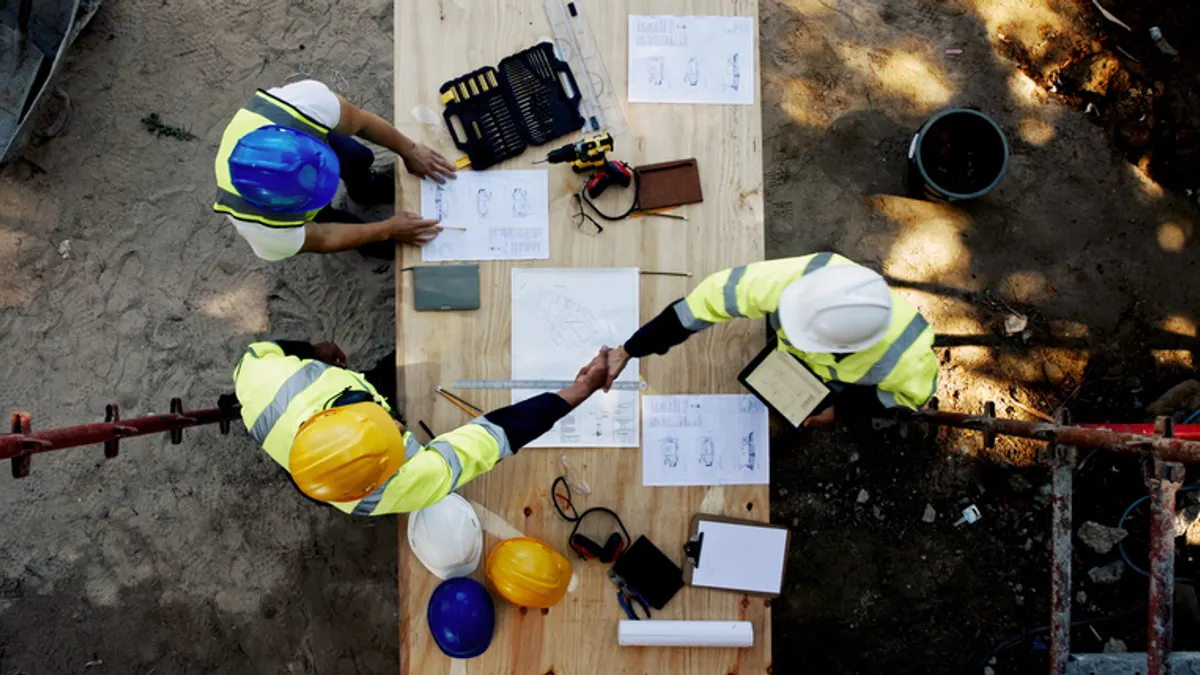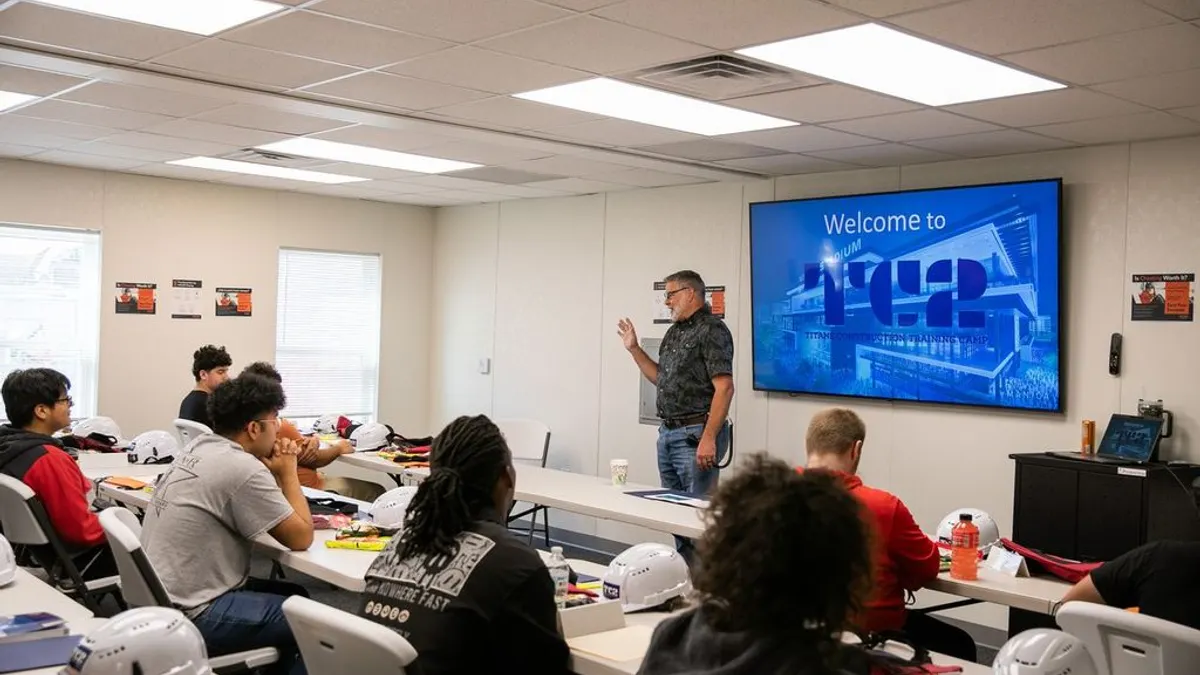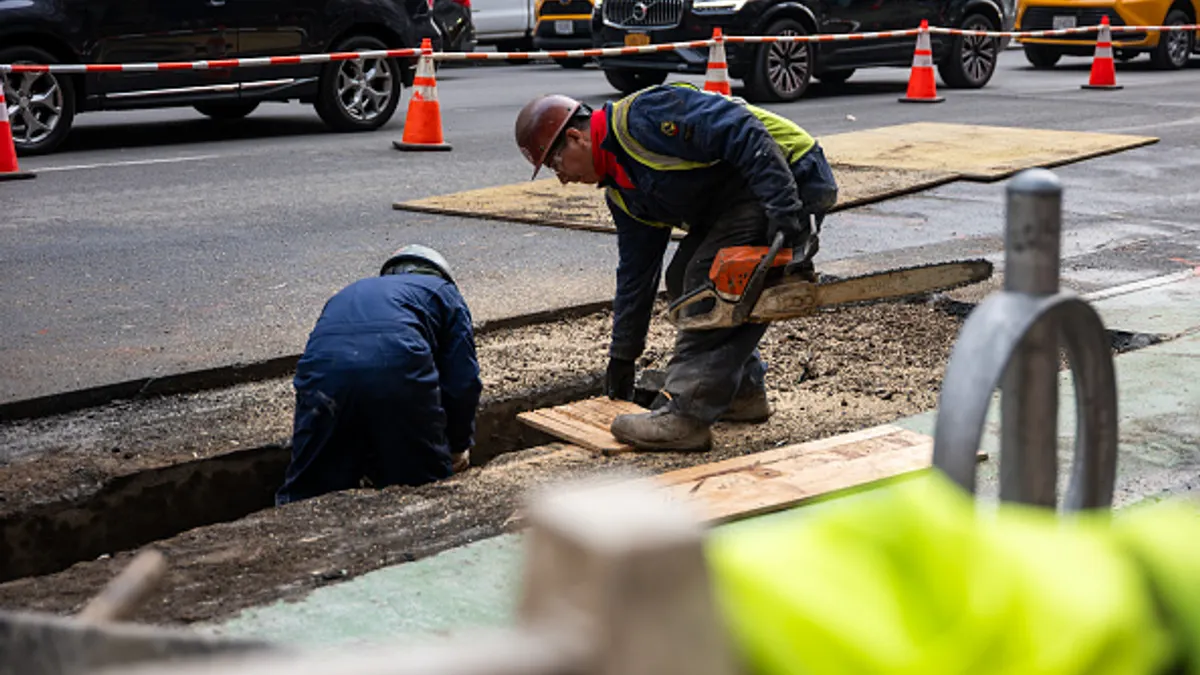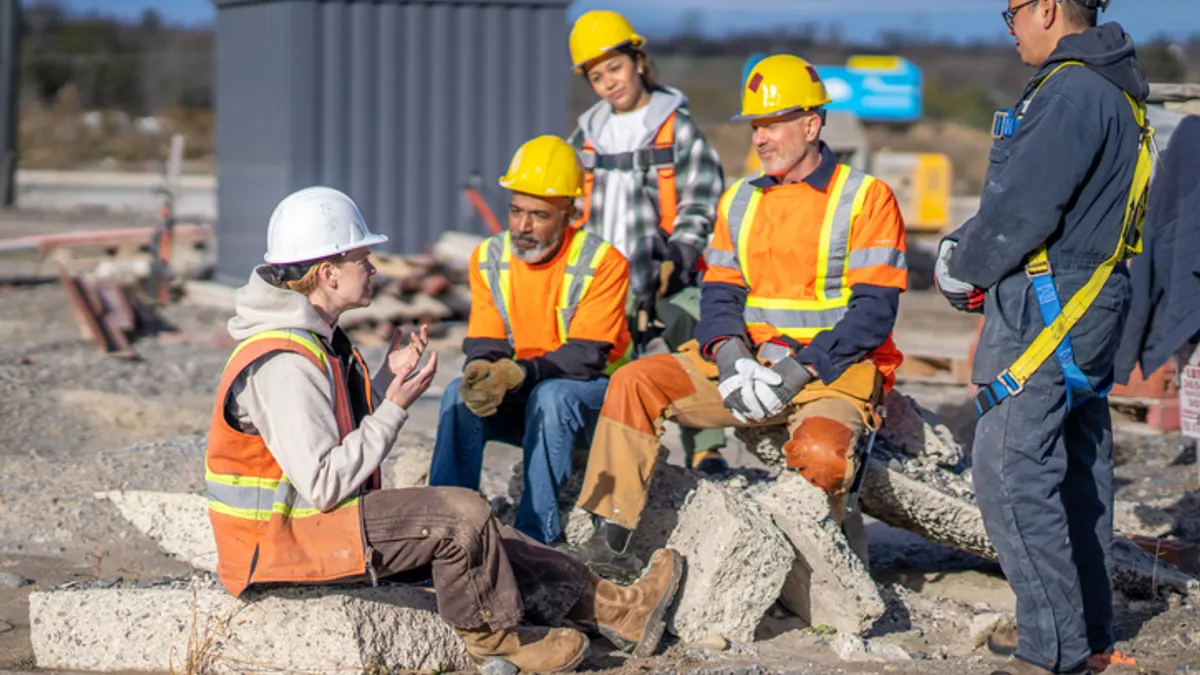This summer, McCarthy Building Cos. welcomed 291 interns from 99 colleges and universities to over 100 nationwide projects.
That’s a promising sign of the growth of construction leadership, said Kim Trotter, early career program manager at St. Louis-based McCarthy.
In her six years working on talent acquisition at the firm, Trotter said she has seen countless people just starting their careers take on important roles on the jobsite and cut their teeth with hands-on experience, such as by leading toolbox talks.
As summer comes to a close, many of those interns will return to school. Here, Trotter talks with Construction Dive on the value of a robust internship program, how to get the most out of it as a contractor and the future of the construction workforce.
The following has been edited for brevity and clarity.
CONSTRUCTION DIVE: How do you make sure McCarthy makes the most of an internship program as an employer?
KIM TROTTER: The cool thing about this intern program is it’s been running for a very long time. We actually have partners who work for McCarthy who interned in 1997 and are now directors and VPs. So a lot of them actually mentor the interns, then they take them under their wings. They know what it was like to be where they're sitting at today. That certainly helps.
Also, we build the program in a way where there's opportunities for the interns to all come together. There's opportunities for our leaders to meet with them, talk to them and get to know them. We do that a couple times a summer. And then we put together learning modules where we'll have a subject matter expert come and share a deep dive into what a day in the life of a superintendent is like.

Then we follow up with the students about it. We follow up with them pretty regularly about what they're working on, challenges that they're having, anything that we can do to help. We find that if we start to have these conversations earlier, we can address a lot of things, versus waiting until the end of the summer and being like, “Oh, we didn't think they performed well.” We just want to uncover it, address it and give them the opportunity to improve.
What’s the key to making a great internship program?
I think if you don't have the support of the leaders, it’s going to be incredibly difficult because our leaders are involved, and not only with the financial support. We have enough resources that we need to be able to get the interns what they need, to get them swag, to get them geared, to get them the safety PPE that they need. But we also have the supportive leadership who come in full force attending these intern events, connecting with the students, building those relationships.
The other thing that's really been crucial for us is the feedback loop. Feedback from the managers who are managing the interns, feedback from the interns themselves and then feedback from the program managers.
There was a time where we did not know, but there were so many onboarding issues. The students coming on board couldn't get access to the software program, so they couldn't log into certain things. So we make sure that feedback loop is there so that it doesn't feel like a painful experience as well.
What’s different about this generation of emerging workers?
They are way more tech savvy, so their ability to learn programs and software is great. The cool thing is a lot of them are teaching some of our superintendents how to use Procore or new hacks or tips or tricks.
They also have more options. There are so many general contractors competing over the same students. We're looking for the same type of student that's highly driven, self-motivated, right? And because they're getting multiple offers now, they can sit and kind of dictate the terms a little bit, whereas in the past, they're like, “I'm lucky to even get a job.”
I think they definitely value diversity as well. Maybe in the past, companies used to hire just one type of person, whereas today, I see that companies are a lot more open. They're trying to get more females into the industry because it's historically been male-dominated. I see companies bend over backwards to try to do that.
The one thing where it has not changed that they've consistently said is that it's been important to them to do meaningful work. They don’t want to show up at the jobsite and just sit and type notes all day. They want to be able to be handed assignments and projects where they feel like they're being a value-add to the team.
How do you respond to people who say “No one wants to work anymore?”
You'll get those people in every industry, right? I think I would say to them, “You'd be pleasantly surprised by the number of students who have come through and their eagerness to jump in, spend as much time as needed to really learn the work and dig in.” It's really refreshing to see.
I think it's not that they don't want to work, it's just that they want to work a different way. They probably just don't want to work the same way that their parents or grandparents have worked, where they've gotten burnt out, they're always stressed.



